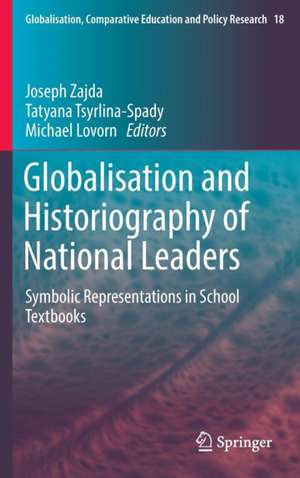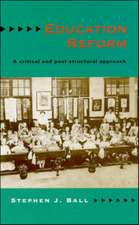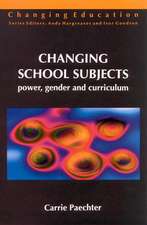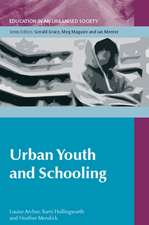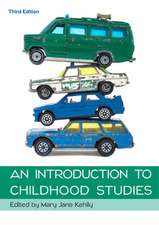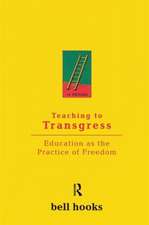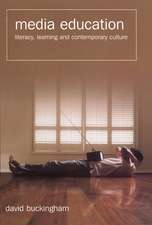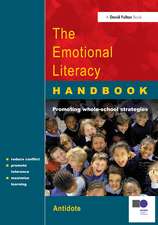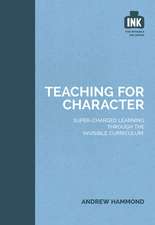Globalisation and Historiography of National Leaders: Symbolic Representations in School Textbooks: Globalisation, Comparative Education and Policy Research, cartea 18
Editat de Joseph Zajda, Tatyana Tsyrlina-Spady, Michael Lovornen Limba Engleză Hardback – 2 ian 2017
| Toate formatele și edițiile | Preț | Express |
|---|---|---|
| Paperback (1) | 584.58 lei 3-5 săpt. | |
| SPRINGER NETHERLANDS – 11 iul 2018 | 584.58 lei 3-5 săpt. | |
| Hardback (1) | 694.97 lei 39-44 zile | |
| SPRINGER NETHERLANDS – 2 ian 2017 | 694.97 lei 39-44 zile |
Din seria Globalisation, Comparative Education and Policy Research
- 24%
 Preț: 731.71 lei
Preț: 731.71 lei - 20%
 Preț: 753.41 lei
Preț: 753.41 lei - 18%
 Preț: 727.66 lei
Preț: 727.66 lei - 15%
 Preț: 643.84 lei
Preț: 643.84 lei - 15%
 Preț: 636.63 lei
Preț: 636.63 lei - 15%
 Preț: 636.80 lei
Preț: 636.80 lei - 15%
 Preț: 637.28 lei
Preț: 637.28 lei - 15%
 Preț: 642.83 lei
Preț: 642.83 lei -
 Preț: 389.11 lei
Preț: 389.11 lei - 15%
 Preț: 643.00 lei
Preț: 643.00 lei - 15%
 Preț: 583.45 lei
Preț: 583.45 lei - 15%
 Preț: 646.62 lei
Preț: 646.62 lei - 18%
 Preț: 731.59 lei
Preț: 731.59 lei - 15%
 Preț: 644.82 lei
Preț: 644.82 lei - 18%
 Preț: 939.77 lei
Preț: 939.77 lei - 15%
 Preț: 635.31 lei
Preț: 635.31 lei - 18%
 Preț: 941.82 lei
Preț: 941.82 lei - 18%
 Preț: 994.39 lei
Preț: 994.39 lei - 18%
 Preț: 724.80 lei
Preț: 724.80 lei - 18%
 Preț: 886.43 lei
Preț: 886.43 lei - 18%
 Preț: 887.86 lei
Preț: 887.86 lei - 18%
 Preț: 777.35 lei
Preț: 777.35 lei - 15%
 Preț: 642.51 lei
Preț: 642.51 lei - 18%
 Preț: 781.45 lei
Preț: 781.45 lei - 18%
 Preț: 775.65 lei
Preț: 775.65 lei - 18%
 Preț: 938.66 lei
Preț: 938.66 lei
Preț: 694.97 lei
Preț vechi: 914.45 lei
-24% Nou
132.98€ • 139.24$ • 110.30£
Carte tipărită la comandă
Livrare economică 07-12 aprilie
Specificații
ISBN-10: 9402409742
Pagini: 338
Ilustrații: XXII, 283 p. 15 illus., 10 illus. in color.
Dimensiuni: 155 x 235 x 19 mm
Greutate: 0.61 kg
Ediția:1st ed. 2017
Editura: SPRINGER NETHERLANDS
Colecția Springer
Seria Globalisation, Comparative Education and Policy Research
Locul publicării:Dordrecht, Netherlands
Cuprins
1 Globalisation and Historiography of National Leaders.- Part 1 Research Trends in Globalisation and Historiography of National Leaders: Symbolic Respresentations in School Textbooks: Europe and Russia.- 2 Russian History Textbooks in the Putin Era: Heroic Leaders Demand Loyal Citizens.- 3 Political Leaders in Russian History Textbooks between the Rise and Fall of the Cult of Personality (1938-1962).- 4 How do Czech Children Remember their 'Father'? Visual Representations of the first Czechoslovak President, T.G. Masaryk, in Czech History Textbooks in Communist and Post-communist Times.- 5 Benito Mussolini in Italian High School Textbooks.- 6 History of Spain Textbooks: Diversity in the Portrayal of National Leaders.- 7 Religious Nation or National Religion: Poland's Heroes and the (Re) Construction of National Identity in History Textbooks.- 8 History Textbooks for French High Schools: Events, Long-term Trends, Europe and Skills, Not National Leaders.- 9 Stephen the Great (1457-1504): A National Hero for Romanians.- Part II Research Trends in Globalisation and Historiography of National Leaders: Symbolic Representations in School Textbooks: Asia/the Rest of the World.- 10 The Politicization of U.S. History Textbooks: Reinventing Ronald Reagan.- 11 Representation of National Leaders in History Books and Textbooks in South Africa: A Transitiological Study.- 12 National Heroes and National Identity Education: A Comparison of Mainland China and Hong Kong's Textbooks.- 13 The Master Narrative Indoctrinating Patriotism: National Heroes in Pakistani School Textbooks.- 14 Gender Mainstreaming in Textbooks Discourse via the Metaphorical Account of Malalai of Maiwand, Afghanistan.- 15 Resurfaced and Disappearing Past: National Heroes in History Textbooks of Post-Soviet Kyrgyzstan.- 16 The portrayal of John Curtin as Australia's wartime Labor Prime Minister.- 17 Research Trends in Globalisation and Historiography of National Leaders: Symbolic Representations in School Textbooks.
